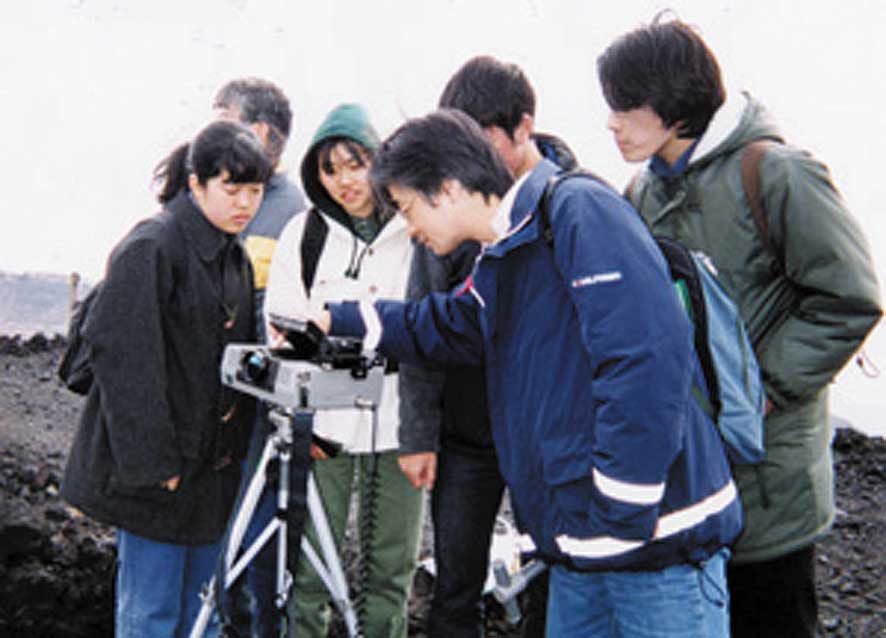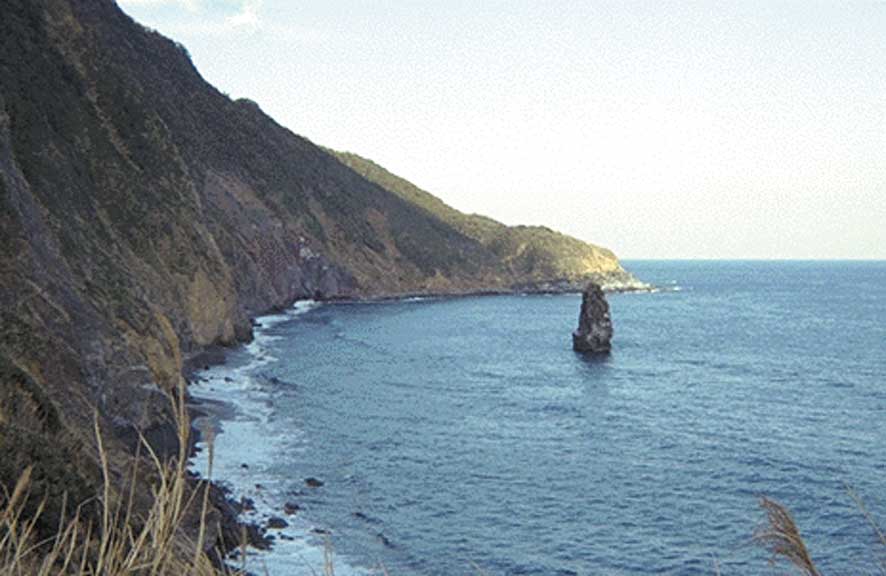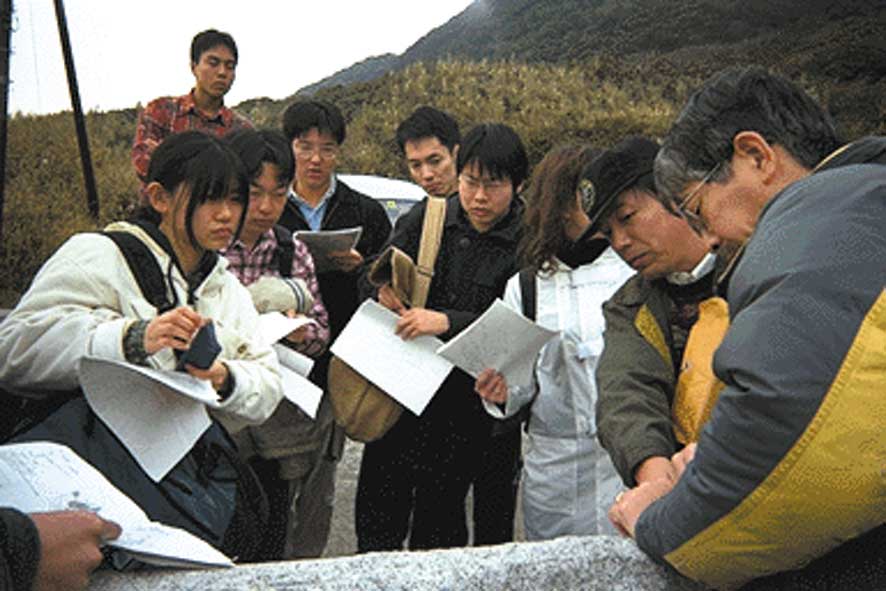
Fig.1. Classroom scene: a student is making a report after a field
observation.



Fig.2. Field trip in Oshima for undergraduate students of College of Arts and Sciences.
|
|
||||||
|
Academic Year |
MC+DC |
JSPS-PD |
FR/RS |
RS |
ERI-RS |
|
| 1998年度 | 89 | 9 | 12 | 2 | 6 | 1 |
| 1999年度 | 84 | 9 | 20 | 2 | 9 | 3 |
| 2000年度 | 93 | 14 | 12 | 0 | 3 | 10 |
Education of graduate students:
The Earthquake Research Institute (ERI) accepts graduate students and research students of the Graduate School of Sciences (Earth & Planetary Science) and the Graduate School of Engineering (Civil Engineering and Architecture). Professors and associate professors of our institute belong to one of the above graduate schools and undertake teaching and supervisions of graduate and research students. ERI also accepts research students of its own, similarly to those belonging to the graduate schools, and conducts teaching of them. Besides them, ERI accepts JSPS (Japan Society for Promotion of Sciences) special researchers, COE researchers, foreign research students and researchers, and research students from private or governmental institutions.
Education at College of Arts and Sciences of University of Tokyo:
A "free seminar" is given to students of College of Arts and Sciences at the Komaba campus by professors of various disciplines. ERI faculty members have been participating in this seminar, and giving lectures. From 1999, we started a new type of free seminar, which will be conducted in the field away from Tokyo, where students can practice geophysical and geological observations in electrical conductivity measurement, seismometry, GPS, and so on. In addition, from 2000 we have started an introductory course in the solid earth science at Komaba campus, which is conducted by a few professors.
"Danwakai", Friday Seminar:
ERI holds "Danwakai", a monthly meeting where its members present their most recent academic and technical achievements, on the last Friday of every month. Danwakai is open to the public, with its program announced via e-mail, fax, and surface mail in advance. On Fridays (except when Danwakai is held), ERI holds a weekly "Friday Seminar" where researchers are invited from outside ERI to give lectures on up-to-date academic topics. In addition, visiting scientists sometimes give "colloquium" when possible.

Fig.1. Classroom scene: a student is making a report after a field
observation.



Fig.2. Field trip in Oshima for undergraduate students of College of Arts and Sciences.